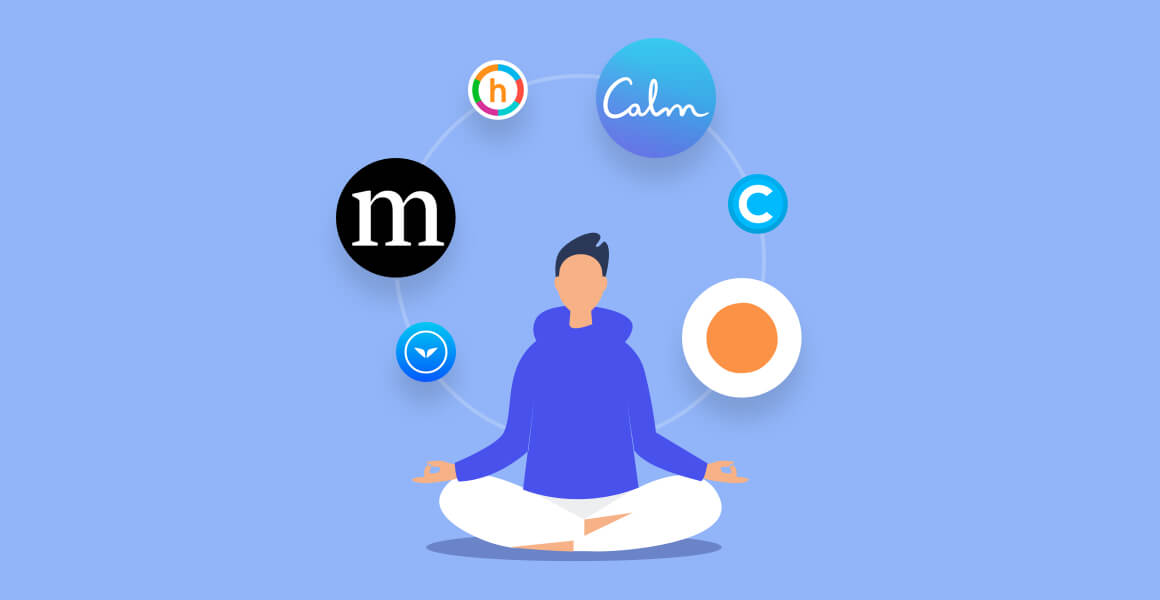Working from home is an introverted fantasy, but for those extroverted, this could feel like a complete and utter nightmare. Extroverts gain energy from socializing and surrounding themselves with people who bring up their serotonin levels, so working from home probably sent many extroverts into total disarray. Silence and solitude: two words an extrovert never wants to hear in the same sentence, whereas introverts thrive and appreciate their alone time to reflect on their work.
Note: If you’re finding it difficult to label yourself as an introvert or an extrovert, you’ve got that in common with half the population. Regardless, working from home is a challenge for everyone, and the most important tip is to communicate your needs. You can still consider some of these tips to practice self-care and find a work from home routine that works for you.
How do you identify? ? or ?
— Shift (@Get_Shift) February 4, 2021
According to recent reports, the “prototypical extrovert” has had a small but persistent advantage in the workplace due to their talkative, outgoing nature. Workplace culture often caters to the loudest voice in the room or those with enough confidence to speak up — generally, extroverts — but working from home has changed everything.
Not an extrovert or maybe somewhere in the middle? Check out our guide for introverts here.

Many extroverts that rely on socialization and engaging with co-workers to bring up their energy have been depleted of what was previously a “normal” part of their day-to-day. The challenge is building and sustaining a community through physical distance, which typically comes naturally to extroverts. With the absence of normality regarding socializing, extroverts may feel sad, lonely, or depressed. Everyone has had to adjust to reading other people’s energy through a screen, and this has been an uphill battle for both introverts and extroverts.
Technology has benefited us in so many different ways throughout this time of separation, and there are lots of resources that can help extroverts in times of isolation. If you’re struggling with the lack of socialization and feeling isolated working from home, here are some ways you can improve your day-to-day and engage with others:
Reach out to colleagues for support
Just hearing the buzz of other people around the office is enough for an extrovert to feel energized and ready for the day, but working from home has forced extroverts to harness energy elsewhere. Colleagues can be your greatest supporters in times of isolation. Remember, many of your co-workers are probably extroverts and craving social interaction just as much as you are. Many extroverts need to talk through their ideas with a co-worker to produce quality work, and without the option to tap your desk buddy on the shoulder, you must make that connection virtually.
- Start your day with a coffee video chat
- Instead of communicating through an email thread, ask if you can hop on a video call
- Use a messaging service like Slack, ChatWork, Whatsapp or Flock
Tip: finding a good morning routine improves the productivity of remote workers. Join our Healthy Habits Challenge this month to nail down your routine and build up positive habits.
View this post on Instagram
Turn up the tunes
While many people associate focus with a quiet environment, many extroverted people find silence distracting. Studies have found that extroverts rely on their immediate surroundings to influence their productivity, and link positive feelings to their environment. If you’re feeling low energy, turn on your favorite song and have a little dance party to get your blood pumping.
Finding the right work playlist can improve your focus and attribute positive feelings to your surroundings. If popular music screams distracting, download Noisli, or BrainFm to boost your focus.
When you finally find the perfect deep work playlist. ??♂️ pic.twitter.com/psexCASUuf
— Shift (@Get_Shift) February 9, 2021
Find a change of scenery
Your work environment heavily affects how you feel about work and is characterized by a positive state influenced by others. If you regularly work in the same space, try moving to another room to inspire creativity. Switch up your workstation when you need a refresh or try different tasks in different locations.
- Go for a walk during your meeting
- Stretch when you’re feeling blocked
- Try out different work environments (maybe add a plant friend!)
View this post on Instagram
Schedule virtual collaboration sessions
Everyone needs help staying focused and engaging in longer, more thoughtful meetings will improve your mental health and do wonders for your productivity. Virtual meetings with co-workers are beneficial for both your accountability and socialization.
Schedule time with your co-worker to collaborate on big ideas, keep each other accountable and check-in on a personal level.
- Don’t forget to ask your co-workers how they are doing — it’s more important now than ever to check in with each other and provide support.
- Schedule a meeting and STICK TO IT, you both need additional socialization opportunities, and those positive feelings will translate into your work.
Related Post: How Virtual Teams Communicate Effectively
extroverts in social isolation gearing up for an 8:30am video conference call #covid19 #workfromhome pic.twitter.com/INgF3MWwBw
— mary catherine smith (@marycburford) March 18, 2020
Find time for reflection to maintain your balance
Try to incorporate time for reflection into your busy schedule. Give yourself some recognition for everything you have accomplished before moving onto the next task. You can do this by scheduling in time for a walk or a call with a friend — check in with your energy levels. If you’re feeling depleted of energy, reflect on possible reasons for feeling this way and make a change.
Meditation and mindfulness have both physical and emotional benefits for extroverts working from home. There are so many apps that can help you on your journey to practicing self reflection and you can find them in Shifts health and fitness app directory. Meditation is a great way to stay in tuned with yourself and check-in during times of exhaustion or overwhelm.
Tip: Don’t see time for reflection as unproductive. This time can produce fantastic work that stems from deep thought and introspection. Ask yourself, ‘why?’
Related Post: The Best Meditation Apps to Boost Focus and Concentration

Don’t skip out on company brunch just because it’s virtual
Social activities that were once part of workplace culture have somewhat vanished, but the need for interaction has not disappeared. Organize a virtual lunch for your team to talk about non-work related topics and inspire energy for your fellow extroverts. Of course, there will be people who aren’t interested or find these social activities draining, but you might find another extroverted colleague.
View this post on Instagram
Seek out interactive experiences
Many interactive experiences have emerged since the beginning of the pandemic, and it’s an excellent opportunity for extroverts to feel like they’re a part of a group. Join a group exercise class or learn a new skill with a friend. Exercise raises your dopamine levels and will leave you feeling refreshed when you feel like you’re hitting an energy slump.
Tip: Try out fitness apps like, Down Dog, AllTrails, Fitbit or Coach.me to boost up that energy and work more productively afterwards.
View this post on Instagram
Prioritize spending time with loved ones
Less time spent in the office can mean more time spent with family and friends. Tune into your relationships and find more time to speak with loved ones over Microsoft Teams, Skype, or Zoom. You can join a Netflix party with a friend to simulate watching a movie together or spend your lunch break with your co-workers (aka your partner, kids, or dog, etc.) Prioritizing your relationships will bring you happiness in your personal life and provide you with energy for the workday.
Laughter increases blood flow by 22 percent and stress decreases blood flow by 35 percent.
What’s your favorite way to laugh? Tag your funniest friend, reply with your favorite comedy, or tell us your best joke! ⬇️#TipTuesday #laughteristhebestmedicine pic.twitter.com/YyRHwoRUY1
— Shift (@Get_Shift) November 17, 2020
Ask for feedback when you need it
When working independently, you might not get as much feedback from your co-workers, so make sure to ask for affirmation when you need it. Extroverts thrive off positive affirmations and support from other people, so don’t be afraid to admit your insecurities. Take it upon yourself to reach out and silence the negative thoughts in your head by asking for affirmation in the job you’re doing. If you struggle with people-pleasing and need immediate feedback, consider these tips:
- Reach out to others for reassurance
- Find a community through interactive experiences
- Engage in virtual get-togethers that feel psychologically safe
View this post on Instagram
Be honest about how you feel
The best thing you can do for your mental stability is to be honest with yourself and those around you about how you’ve been feeling. If you’ve been feeling depleted of energy and exhausted from the constant isolation, reach out! Loneliness is difficult to cope with, and everyone is struggling with it. If you’re honest about how you’re feeling, that might inspire your coworkers to be honest back and share strategies for how they have been coping. Just because you aren’t seeing as many people day-to-day doesn’t mean there are no opportunities for genuine connections — it just takes more intention.
View this post on Instagram
Stay organized working from home
It’s easy to feel overwhelmed when you’re working from home, and without a simple way to stay organized, working independently can be exhausting. Preserving your energy by finding a tool that streamlines your workflow will ease your stress. Shift is a desktop app that streamlines all of your email accounts, apps, and extensions, so you can spend less energy finding a management strategy and more energy spent in deep work.
Ten articles before and after
10 Ways to Improve Work Performance in 2021
Co-working From Home: Tips To Keep Your Relationship Strong
The 20 Best Time Management Tools for a Productive 2021
Top Productivity Tools & Apps for 2021
7 Cognitive Biases That Turn Time Management Into Chaos
An Introverts Guide To Working From Home
LIVE: Reset Your Productivity in 2021
How Marketers Boost Productivity Using Shift
